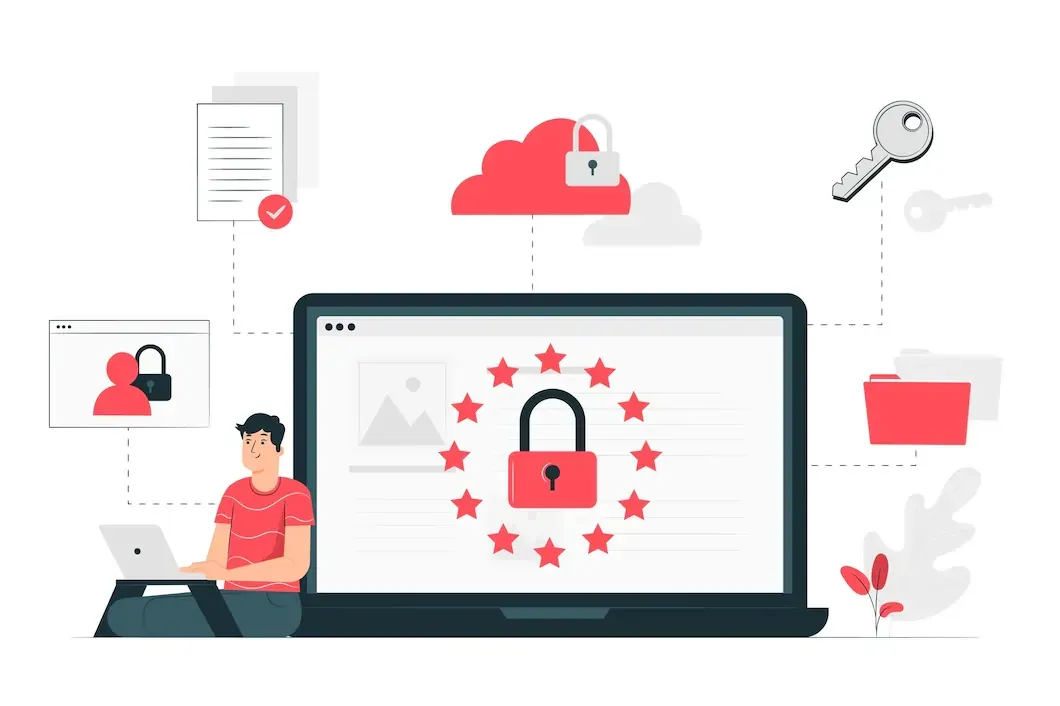
Cybersecurity is essential for protecting your personal and financial information online. Unfortunately, it's easy to make mistakes that can put you at risk of a cyber attack.
If you are a small business owner and things are going well, cyber-security needs to have a place in your organisation; data theft is rampant and you only get to hear about major data breaches, with thousands of small cyber-crimes committed that go under the radar. Of course, there are professional cyber-security providers, which is the best all-round solution.
Here are a few mistakes to avoid with cyber-security.
1. Failing to see the importance of pro cyber-security – Things might be tight money-wise and the money you’ll save by cutting out cyber-security will come in very handy; besides, you have a firewall and anti-virus software. Sadly, today’s hacker is a force to be reckoned with and your anti-virus can only identify bad code that it knows; anything else will slip right through the net.
2. Choosing the first provider – This is a common occurrence; the business owner has much to do and as soon as they find what they think is good cyber-security, they take a package. Talk to at least 3 cyber-security companies and with Devops security software, you have total peace of mind. Listen to each provider and then you are in a position to make an informed decision and partner up with a company that can scale up your protection as the business grows.
3. Inadequate budget – This happens when a business owner does not allocate enough money for proper cyber-security. Like any industry, there are levels and cyber-security needs to be upgraded as an organisation expands. Large companies and corporations engage a cyber-security specialise to consult re network security, with 24/7 cover. Fixed fee cyber-security allows a business manager to budget effectively and this should be an essential service that is ongoing.
4. Failure to train staff – Any employee that connects with IT should have a basic knowledge; talk to a local IT support company about staff training for safe practices. A half day program is all it takes to enlighten your employees about safe online practices. If more companies did this, the number of cyber-attacks would be greatly reduced. Many people never give cyber-security a thought as they go about their day, yet hackers work tirelessly in the background looking for ways to steal data. Click here for more info on cyber-security.
5. Using weak passwords – One of the most common mistakes that people make is using weak passwords, such as "password" or "123456," or using the same password for multiple accounts. Hackers are often able to crack these passwords easily, which can leave you vulnerable to attack. To protect yourself, use strong, unique passwords for each of your accounts, and consider using a password manager to help you keep track of them all.
6. Clicking on suspicious links – Phishing attacks are a common way for hackers to gain access to your accounts. These attacks often involve sending you an email or message with a link or attachment that, when clicked, installs malware on your device. To protect yourself, be cautious about clicking on links or downloading attachments from unknown sources, and be sure to verify the authenticity of any links or attachments before clicking on them.
7. Not updating anti-virus software – Anti-virus software relies on a virus identification database; if a new virus comes along, your protection will not recognise it and infection will occur. The program should automatically update when you connect to the internet; if this happens, do not pause or stop the download, as it contains new virus data. We must understand that the hacker is always developing new strategies and without professional assistance, your protection might not be adequate.
To conclude, every business owner should connect with a cyber-security expert and 24/7 cover is assured.
By avoiding these common mistakes, you can significantly reduce your risk of falling victim to a cyber attack. Stay vigilant, and take the necessary steps to protect yourself and your sensitive information.